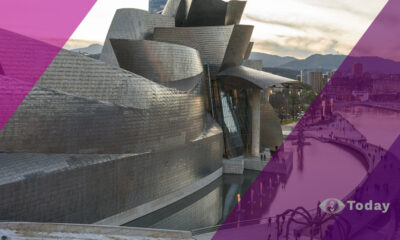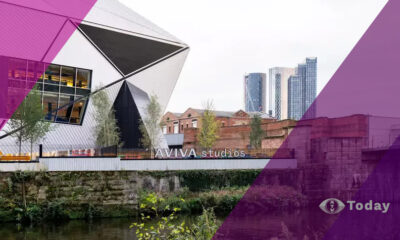
Culture
Are algorithms ‘erasing pop culture’?
The Role of Algorithms in Content Consumption…
In today’s digital landscape, algorithms are the unseen architects of our online experiences, acting as gatekeepers that determine what content users see and, consequently, consume. These complex sets of rules and calculations shape user experiences across various platforms by tailoring content to individual preferences and behaviours. Social media algorithms, for instance, filter, rank, and recommend content, prioritizing posts with high levels of interaction to maintain user engagement.
Personalisation and its Pitfalls
Algorithms significantly influence content consumption through personalisation. Platforms such as Facebook, YouTube, and TikTok employ recommendation algorithms that use individual-level data to serve content aligned with user interests, thereby maximizing engagement. This personalized approach aims to keep users satisfied and engaged longer, whether it’s a trending recipe or an intriguing workout video.
However, this personalization comes with downsides. Algorithms often favour mainstream, commercially viable content over niche or experimental works, creating “filter bubbles” or “echo chambers” that limit exposure to diverse genres and perspectives. This dynamic can narrow users’ cultural horizons and impact public opinion and societal values.
Moreover, algorithms affect public discourse on critical issues like politics, climate change, and public health by amplifying certain narratives over others. Their role in spreading sensational or divisive content has raised concerns about misinformation and manipulation of public understanding. As algorithms continue to shape content consumption, users are challenged to critically evaluate the diversity and accuracy of the information they receive, emphasizing the need for transparency and accountability in algorithm design and deployment.
The Shift in Pop Culture Dynamics
Pop culture dynamics are shifting dramatically in the digital age, largely due to the influence of algorithms. Traditionally defined as a collective set of ideas, behaviours, and trends, pop culture is now closely tied to the algorithms shaping media consumption and social interactions.
Homogenisation Through Social Media
The music industry exemplifies this shift. Social media dynamics, driven by algorithms, are reshaping pop music production and consumption, leading to increased homogenisation. Algorithms prioritize high engagement, reinforcing existing pop culture narratives and often stifling creativity and innovation.
Algorithms as Cultural Gatekeepers
Across the media landscape, algorithms act as cultural gatekeepers, preselecting content based on perceived preferences. This influence leads to a culture dominated by mainstream, commercially successful works, while niche or underground artists struggle to gain visibility. Such imbalances perpetuate inequalities within cultural domains, limiting diversity and innovation.
AI and Cultural Identity
Artificial intelligence’s role in pop culture extends beyond media, influencing societal perceptions and norms about technology and identity through its portrayal in movies, TV, and literature. This portrayal sparks discussions on ethics and existentialism, illustrating the dialogue between technology and cultural realms.
The Need for Inclusivity
Despite these challenges, algorithms can promote diversity and inclusivity within pop culture. By addressing biases, algorithms can reflect and encourage diversity, fostering more inclusive media platforms. Without conscious efforts, however, algorithms risk perpetuating cultural and social inequalities. Ensuring fairness and diversity in the algorithmic age requires collaborative efforts among stakeholders.
Effects on Creators and Artists
Algorithms significantly impact the visibility and reach of creators and artists, dictating the flow of content across digital platforms. Artists must engage with algorithms, often sacrificing creative autonomy. This dynamic raises questions about the impact of algorithms on the artistic process and the cultural landscape.
A primary challenge is the overwhelming volume of online content, making it difficult for artists to stand out. Artists must strategically engage with algorithmic trends to enhance visibility without compromising their artistic vision. Algorithms determine which content gets promoted, leading to a culture where mainstream works dominate, while niche artists struggle for exposure.
To counter these challenges, artists must understand algorithmic preferences and tailor content accordingly. By analysing data and trends, creators can optimize work to resonate with algorithms. However, tension exists between maintaining artistic integrity and succumbing to algorithmic demands.
This pressure affects musicians and visual artists, writers, and designers, urging them to fit their work to algorithmic norms. There’s concern that algorithms contribute to cultural homogenization, flattening diverse artistic expressions.
Societal Impacts
Algorithms profoundly shape societal norms and cultural dynamics as they become embedded in social media platforms. They prioritize content generating high engagement, influencing what users see and perceive as trends. This can lead to echo chambers, reinforcing existing cultural norms and potentially stifling diversity.
While algorithms can accelerate pop culture spread, they also contribute to content homogenization, sacrificing creative diversity for mass appeal. This is evident in music, where algorithms prioritize mainstream content, narrowing users’ musical horizons.
Algorithms also influence societal values and interactions, acting as agenda-setters that subtly guide societal perceptions and cultural choices. Their potential to perpetuate cultural biases presents a significant societal impact. Without addressing biases, algorithms risk reinforcing stereotypes and amplifying inequalities.
However, algorithms can foster diversity and inclusion by making decisions based on objective data, not subjective biases. This potential is realised through proactive measures like diverse data collection and inclusive algorithmic processes.
Counterarguments and Challenges
Despite algorithms’ influence, asserting they erase pop culture overlooks counterarguments. Growing awareness and scrutiny regarding algorithmic governance, transparency, and ethical frameworks aim to ensure fairness and preserve cultural diversity. Ethical AI frameworks address bias challenges and ensure inclusive AI development that respects cultural identities.
Algorithms can also positively set agendas, introducing users to a wider array of cultural content, broadening horizons. They democratize content distribution, promoting cultural goods that might otherwise remain obscure.
However, challenges remain. Algorithms’ impact on public discourse, especially on issues like climate change and social justice, requires critical examination. There’s a risk of reinforcing societal biases, steering conversations toward predominant narratives instead of diverse perspectives.
Social media platforms exemplify algorithms’ influence on our cultural landscape, necessitating a responsibility to maintain authentic and diverse cultural experiences. Users must be aware of curated digital experiences and engage critically with content. As Josh Gordon, a technology infrastructure expert at Repocket, emphasizes, “Understanding the algorithms is crucial not only for creators but also for users who wish to maintain a diverse cultural consumption.”
In conclusion, while algorithms have a profound impact on shaping cultural landscapes, there is potential for harnessing their power to enhance diversity and inclusivity, provided we remain vigilant and proactive in addressing inherent biases and fostering transparent algorithmic processes.










